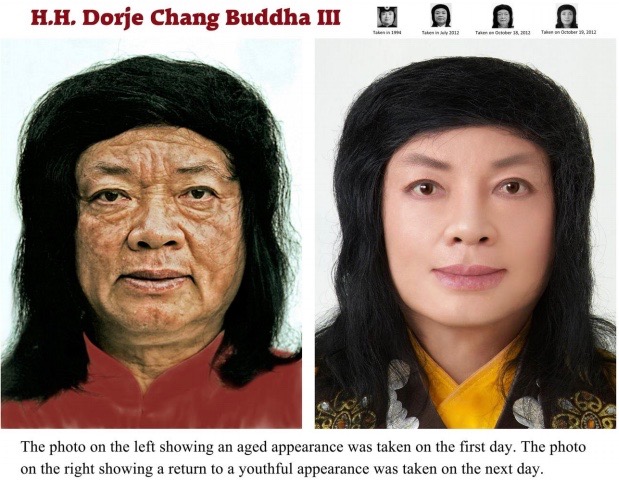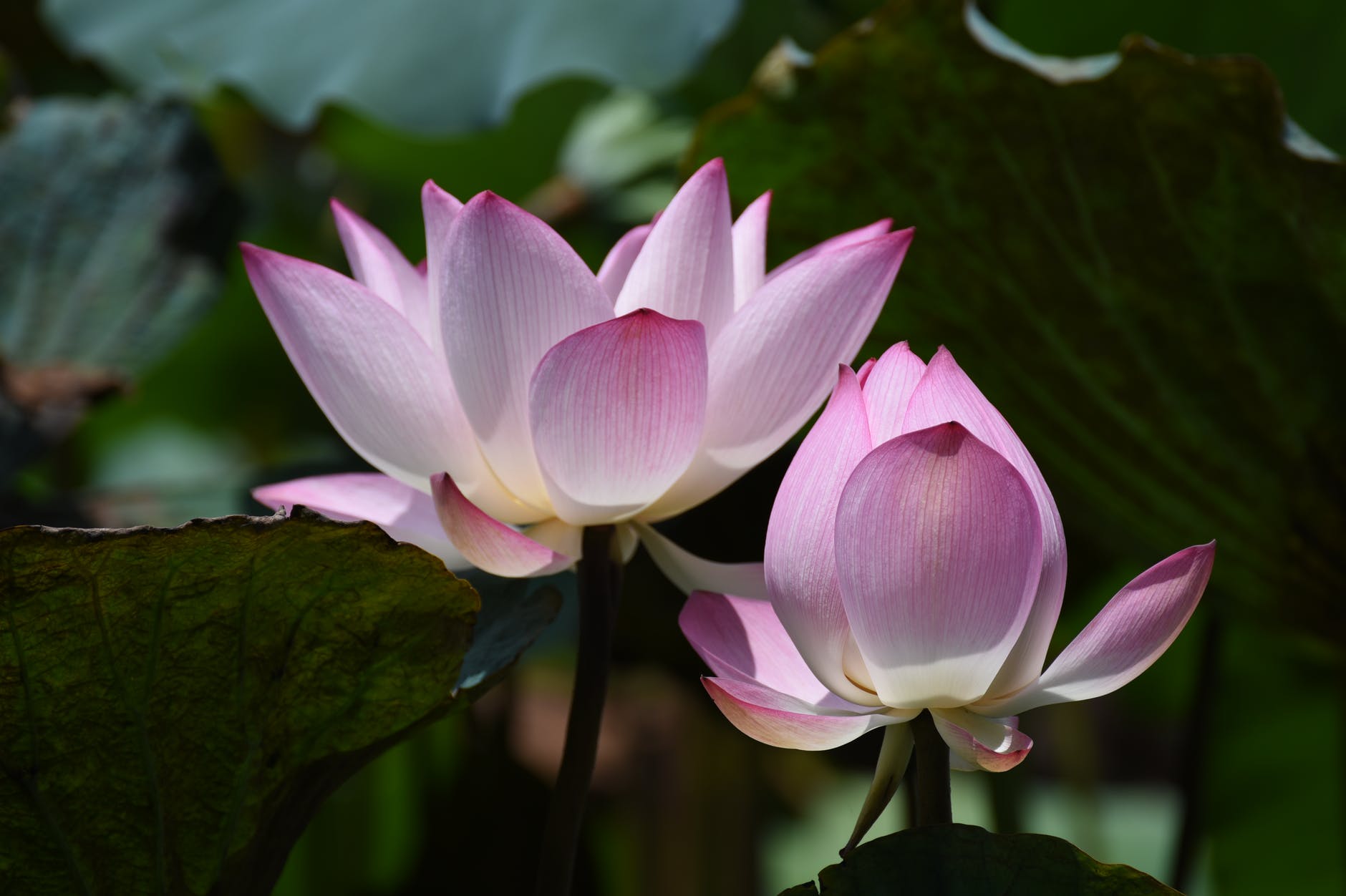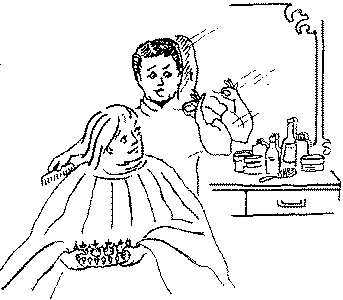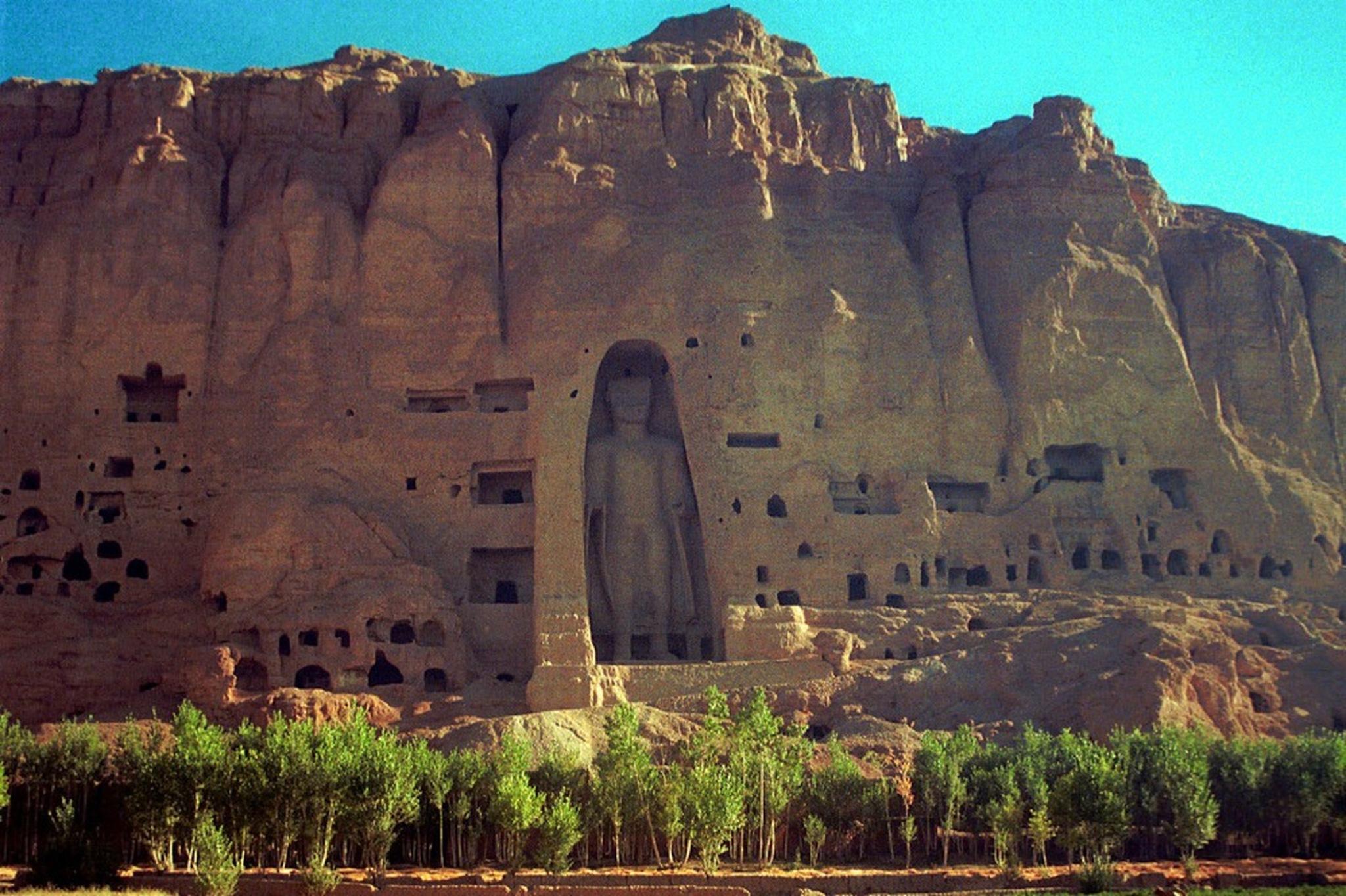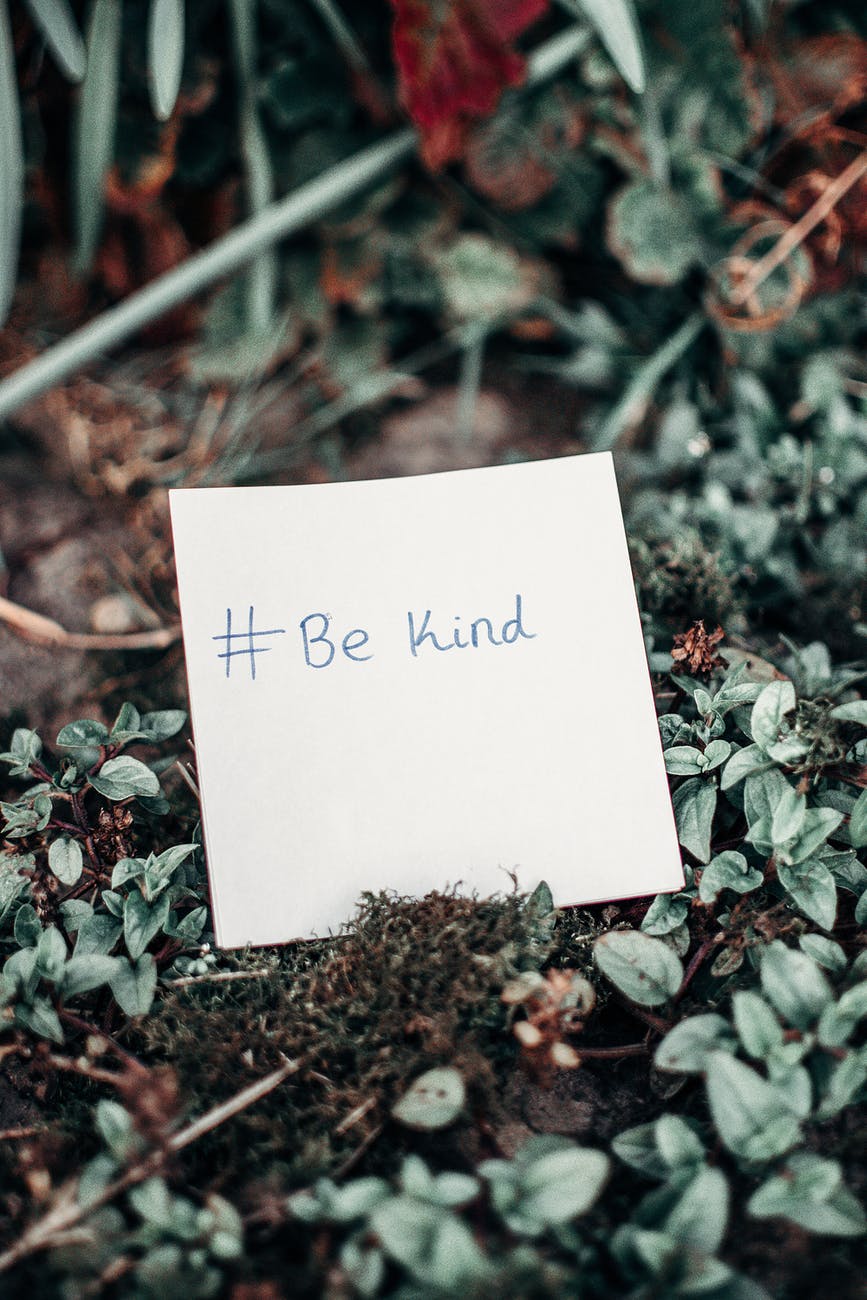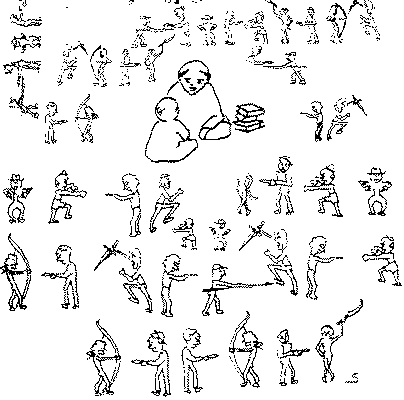THE DHARMA OF CULTIVATION TRANSMITTED BY H.H. DORJE CHANG BUDDHA III
An oral discourse on the dharma given by His Holiness Dorje Chang Buddha III Wan Ko Yeshe Norbu Holiest Tathagata to rinpoches and other disciples:
WHAT IS CULTIVATION?
Today you, who are a rinpoche, respectfully requested a discourse on the dharma relating to the question “What is cultivation?” This is a very fundamental lesson; indeed, the first lesson. Nonetheless, this is an important matter that many cultivators, including those who have practiced cultivation over many years, do not understand and are confused about. It is difficult to incarnate as a human being. It is even more difficult to incarnate as a human being with the opportunity to encounter the true Buddha-dharma. Thus, today I will enlighten everyone on dharma relating to the question “What is cultivation?”
The essence of learning Buddhism lies with carrying out what we learn in our cultivation. We use good and bad causes and conditions as objects of cognition. Therefore, we must first understand what cultivation is. Cultivation is cultivating the increase of good karma and cultivating the avoidance of bad karma. It is increasing good karmic conditions, planting good causes, and reaping good effects. It is avoiding the increase of bad karmic conditions, not planting bad causes, and avoiding the reaping of bad effects. But the term cultivation has a rather broad meaning. We must first understand what cultivation is.
There must be that upon which the cultivator can rely. Without that which can be relied upon, your cultivation can easily become erroneous, non-Buddhist cultivation. For example, the cultivation of demonism entails cultivating the behavior of demons. The cultivation of Buddhism entails cultivating the behavior of Buddhas. Therefore, there must be that upon which the cultivator can rely. There must be models that the cultivator can reflect and rely upon.
All other religions espouse eliminating evil, promoting good, restraining selfishness, and benefiting others. The cultivator cannot rely upon this alone, for this is cultivation without understanding the purpose of Buddhism. This alone is not the practice of true Buddhism. Thus, in our cultivation, that which we rely upon is the Buddha. The perfect enlightenment of the Buddha is the model for our cultivation. We use our three karmas of bodily actions, speech, and thoughts to emulate everything about the Buddha. We thereby keep ourselves far away from all impure karma based on delusion and all evil conduct. We thereby constantly stay far away from that which is evil or bad. By not being involved with that which is evil or bad, our three karmas do not increase bad causes. Rather, we must carry out all good karma. Even one kind thought is something we should increase and never decrease. We should increase our good karmic affinity, good causes, and good karma every day. Simply put, we must always avoid that which is evil or bad and accumulate that which is good.
Why can it be said that we must stay far away from evil or bad karma but it cannot be said that we must eliminate evil or bad karma? Within the truth of Buddhism, there is the doctrine that the law of cause and effect can never be denied. Cause and effect cannot be eliminated. To say that it can is to take a nihilistic point of view. Hence, we can only build a wall of good karma, which is like building a retaining wall. This wall of good karma has the effect of blocking us from our evil karma.
Thus, only through learning from the Buddha, cultivating the conduct of the Buddha, and ultimately becoming a Buddha can we thoroughly liberate ourselves from the karma (cause and effect) that binds us to the cycle of reincarnation. Cause and effect still exists when one becomes a Buddha. However, cause and effect can not affect a Buddha. For example, the Buddha saw mountains of swords and seas of fire in the hell realm. The mountains of swords and seas of fire continued to exist as extremely painful means by which living beings undergo karmic retribution. When the Buddha suddenly jumped into the mountains of swords and seas of fire in order to undergo suffering on behalf of other living beings, the mountains and seas immediately transformed into a lotus pond of nectar. They transformed into a wonderful state. With respect to a Buddha, all bad or evil karmic conditions turn into the manifestation of good karma. Not only is there no suffering, there is instead a manifestation of great happiness.
Cultivation is to leave the cycle of reincarnation, liberate yourself from all suffering, become a holy being, and persevere until you become a Buddha. To leave the cycle of reincarnation, we must establish a mind of renunciation (a mind determined to leave the cycle of reincarnation), a mind of firm belief, a mind with immovable vows, a mind of diligence, and mahayana bodhicitta. All real states emanating from these minds rely upon and are based upon right view. Without right view, all states of mind will be inverted and confused. In other words, you will not experience any beneficial effects from cultivation that lacks right view.
For example, if you want to practice bodhicitta first, you will not be successful. It will result in an empty and illusory bodhicitta, a deluded and false state of mind. That is because bodhicitta must be based upon a mind of renunciation. That is, you must have a mind that is truly determined to attain liberation, to attain accomplishment in the dharma, and leave all of the sufferings of reincarnation. You must deeply understand that the cycle of reincarnation is indescribably painful. Not only are you yourself suffering, but all living beings in the six realms of reincarnation, each of whom we regard as our father or mother, are likewise suffering in the painful state of impermanence. Only if you want to extricate yourself from suffering do you truly cultivate yourself. Only then do you engage in Bodhisattva conduct that benefits yourself and others. Only then can bodhicitta arise.
However, it would be a mistake if you begin by cultivating a mind of renunciation. That would not accord with the proper order of cultivation. That would result in a non-substantive, theoretical type of desire to leave reincarnation and a self-deluded and self-confused state of mind. In such case, you would not be able to establish the true state of mind that is determined to leave the cycle of reincarnation.
Thus, if you want to have this true state of mind that is determined to leave the cycle of reincarnation, you must first understand impermanence. The second step is to have a mind of firm belief. You must firmly believe in the sufferings of reincarnation, which has as its source impermanence. Only with such a mind of firm belief will you fear the sufferings caused by impermanence and successfully attain a state of mind that truly fears impermanence. Having attained a state of mind that truly fears impermanence, your state of mind that is determined to leave the cycle of reincarnation will grow stronger day by day. Naturally, your state of mind that is determined to leave the cycle of reincarnation will enter a real state that truly fears impermanence. If living beings do not understand that all conditional dharmas in the universe are impermanent, if they do not understand the sufferings connected with reincarnation and impermanence, then they cannot establish a firm mind that gives rise to thoughts of leaving the cycle of reincarnation. If you have never thought about leaving the cycle of reincarnation, you will not cultivate at all, and you will not want to learn Buddhism. Those who do not learn Buddhism have no desire to leave the cycle of reincarnation. How could one who does not learn Buddhism have a mind determined to leave the cycle of reincarnation? Thus, you cannot first cultivate a mind determined to leave the cycle of reincarnation. As for the first step, you will not enter Buddhism without having a mind of impermanence. (Truly giving rise to feelings of fear of impermanence and truly giving rise to a state that fears impermanence.) Even if you become Buddhist, you will not be able to attain a deep level of correct cultivation.
To understand what cultivation is, you must understand the eight fundamental right views relating to learning Buddhism and cultivation.
The first one is a mind of impermanence. The second is a mind with firm belief. The third is a mind of renunciation (a mind determined to leave the cycle of reincarnation). The fourth is a mind with true vows. The fifth is a mind of diligence. The sixth is the precepts. The seventh is dhyana and samadhi. The eighth is bodhicitta. Recognizing these eight dharmas and carrying them out with right views is correct practice of Buddha-dharma. These eight fundamental right views, which are indispensable for cultivators, must not be taken out of order. All the fruits resulting from a mind of impermanence are causes of cultivation. All of the fruits resulting from a mind with firm belief are causes of steadfastness that does not change. All of the fruits resulting from a mind of renunciation are causes of liberation. All of the fruits resulting from a mind with true vows are causes of action. All of the fruits resulting from a mind of diligence are causes of persistent advancement. All of the fruits resulting from the precepts are causes of correct direction of cultivation. All of the fruits resulting from dhyana and samadhi are causes of wisdom. All of the fruits resulting from bodhicitta are causes leading to becoming a Bodhisattva.
These eight fundamental right views are the foundation of cultivation, liberation, and accomplishment in the dharma. If the root is not right, cultivation will not be established. Therefore, cultivation cannot be disorderly. Thus, practicing the eight fundamentals of cultivation must be guided by right views. That is, guided by right understanding and right view, you correctly develop your cultivation by going through these eight fundamentals in their proper order. That is cultivation. In your cultivation, you must constantly put into practice bodhicitta. That is because bodhicitta is the foundation for becoming a Bodhisattva.
According to the Buddha’s exposition of the dharma, the true meaning of bodhicitta is that it is the cause that will inevitably lead to becoming a Bodhisattva. Whoever walks the path of bodhi will ultimately reap the fruit of bodhi. The broad meaning of bodhicitta includes all of the mahayana dharma having to do with saving living beings out of great compassion and the causes leading to attaining the stages of enlightenment of a Bodhisattva.
However, because of the insufficient good fortune of living beings, some of the originally complete meaning of the Buddha-dharma has been lost as it was handed down from generation to generation. Especially in this current Dharma-Ending Age in which the karma of living beings in the three spheres (worlds) of the universe is like a sea of surging waves, it is as difficult for living beings to encounter the true Buddha-dharma as it is for a blind turtle swimming in the ocean to stick its neck through a tiny knothole in a floating and bobbing board. Thus, it is now extremely difficult to obtain the perfect Buddha-dharma. As a result, the meaning of bodhi has shrunk. It has gradually shrunk from its broad meaning to the narrow meaning of bodhicitta dharma.
There are two types of bodhicitta. There is bodhicitta in the holy sense and bodhicitta in the worldly sense. Bodhicitta in the worldly sense can be roughly divided into “vow bodhicitta” and “action bodhicitta.” The practice of vow and action bodhicitta includes a myriad of dharma methods, such as those relating to sentient beings, non-sentient things, the four great elements, one’s own six elements, as well as breathing, the ear base, the eye base and other bases, inner and outer mandalas, and ritualistic chanting. Whether it is bodhicitta in the worldly sense or the holy sense, if you are guided by the two sets of seven branches of bodhicitta, that is the highest, most excellent, and most complete form of bodhicitta.
Each living being in the six realms of reincarnation within the three spheres of existence has the right to cultivate bodhicitta. However, most living beings do not have the karmic affinity. Thus, they practice a fragmented and shrunken version of bodhicitta dharma. As a result, they frequently harbor the misconceptions that only those with an enlightened mind can practice bodhicitta or bodhicitta is the dharmakaya state of enlightenment. Of course, we do not deny these are existing parts of bodhicitta. However, these conceptions omit the practice of bodhicitta dharma by those living beings who do not have an enlightened mind. More importantly, bodhicitta is not dependant upon an enlightened mind or an unenlightened mind. Bodhicitta is the power of vows made out of great compassion by those living beings who learn Buddhism in any of the six realms of reincarnation within the three spheres of the universe as well as the power of vows made out of great compassion by all holy beings in the dharma realm. Bodhicitta is actual conduct based upon great compassion that aids living beings in becoming Buddhas or Bodhisattvas. It is the mind of love in the holy sense that the enlightened and the unenlightened or the holy and the ordinary both have.
With respect to bodhicitta, those who are enlightened use their enlightened state of virtue and realization, correct practices, and propagation of the true dharma to teach and enlighten living beings so that those living beings will become Buddhas. With respect to bodhicitta, those who are not yet enlightened vow out of great compassion that living beings and themselves shall together attain accomplishment in the dharma and liberation. They help other people enter the path of the true dharma of the Buddha, vowing that they will become Bodhisattvas and Buddhas. To such persons, bodhicitta dharma is the virtue of aiding others to become accomplished in the dharma. Because they benefit others, they receive merit. They thereby increase the causes leading to their becoming Bodhisattvas.
The manifestation of bodhicitta is expressed through actual practice involving the three karmas, which practice reflects great compassion. Any true cultivator, no matter whether he or she is ordinary or holy, has the right to arouse bodhicitta and should arouse bodhicitta. That is because bodhicitta is not an enlightened mind possessed only by holy people. Rather, it is conduct based upon great compassion. It is the planting of causes based upon a vow that oneself and others become enlightened. Bodhicitta does not only include the ten good characteristics, the four limitless states of mind (the four immeasurables), the six paramitas (perfections), and the four all-embracing Bodhisattva virtues (four methods that Bodhisattvas employ to approach and save living beings). Rather, it includes the entireTripitaka, the esoteric scriptures, and all dharma transmitted orally, through the ears, or telepathically that engenders conduct that is greatly compassionate, is in accord with the dharma, and benefits and saves living beings.
Thus, the bodhicitta is ultimate truth in a broad sense. With respect to the Buddha, bodhicitta is the three bodies, the perfect wisdom of Buddha that is summarized in four truths, and the mind of anuttara-samyak-sambodhi. With respect to a Bodhisattva, bodhicitta is propagating the dharma and benefiting and saving living beings out of great compassion. With respect to an enlightened being, bodhicitta is not being attached to the characteristics or distinctive features of things and not engaging in intellectual frivolity or conceptual elaborations. This is his or her original nature. The true emptiness of original nature is wonderful existence. It is the ultimate truth of all conditional dharmas. This truth neither arises nor ceases. With respect to an ordinary person, bodhicitta is compassionately helping other people and vowing that they learn Buddhism and attain liberation.
You must first have the perspective of impermanence before you can arouse bodhicitta. You must understand the impermanence and suffering relating to yourself and other living beings revolving in the cycle of reincarnation and thereby generate a perspective of awareness, a mind of impermanence. You will then vow to leave the cycle of reincarnation. As a result, you will then establish a mind that is determined to leave the cycle of reincarnation. You will say, “I resolve to leave.” You also want all living beings in the six realms, who are like your father or mother, to leave. You understand that the cycle of reincarnation is like a bitter sea, is difficult to endure, and is extremely painful. Because of this resolute perspective, you will generate a strong and pressing fear. You will constantly seek to be liberated at this very moment. But you understand that only by having the conduct of a Bodhisattva can you quickly attain liberation from the cycle of reincarnation. You thus vow to become a Bodhisattva. You seek to quickly enlighten yourself and others. Naturally, you then generate a mind of great compassion. As a result, the seeds of enlightenment are disseminated. The arousal of bodhicitta is based upon a mind of great compassion. Thus the Buddha said, “The water of great compassion irrigates the seeds of bodhi. As a result, the bodhi trees will have lush foliage and the fruits will be plentiful.” Hence, bodhicitta will naturally be established. Bodhicitta is the cause leading to becoming a mahayana Bodhisattva. You will attain pure and correct views and understanding of cultivation. Based upon these right views, you should deeply enter the emptiness bhuta-tathata (true suchness) and the practice of the state of emptiness. At this time, you transform worldy bodhicitta into a state in which you realize that “the three entities are inherently empty.” That is you transform everything in existence into bodhicitta in a holy sense. With bodhicitta, you cultivate the conduct of bodhi and enter the stage of a Bodhisattva.
Cultivation of bodhicitta requires implementation. Cultivation of bodhicitta is not a matter of just ritualistic chanting, making empty vows, or engaging in visualization. In the cultivation of bodhicitta, the most important aspect is deeply pondering the following concerning yourself: “My body is impermanent, is changing every nanosecond, and is moving toward decline, old age, and death. I compare why my face has aged over a ten-year period, over a forty-year period, or over a seventy-year period. The degree of agedness of my skin has changed. I will soon enter old age, sickness, and death and continue revolving in the cycle of reincarnation, where I will experience suffering. I also contemplate that joyfully innocent, newborn, fresh, and lively look I had when I was a small child. I contemplate how I no longer have that childlike appearance. My face and skin have aged. My energy has declined. I often fall ill. That quality of youth is gone. The power of impermanence will end my life. My relatives and old friends will all die one after another. Like a dream, it will soon be all over. My mind generates great fear. With a resolute mind, I act in accord with the precepts, practice in accord with the dharma, and enter bodhicitta by practicing the two sets of seven branch bodhicitta dharma: the Dharma of Great Compassion for All Living Beings as My Mother Bodhicitta and the Dharma of Bodhisattva Correspondence Bodhicitta.”
When practicing the Great Compassion for My Mother Bodhicitta, you arouse great compassion and cultivate the following: understanding who my mother is, bearing in mind kindness, repaying kindness, loving-kindness, compassion, renouncing greed, and eliminating attachment. When practicing this cultivation, everyone should carry out the following for themselves:
Understanding who my mother is: I deeply understand that all living beings in the six realms of reincarnation within the three spheres of the universe have been since beginning-less time my fathers and mothers in the revolving cycle of reincarnation.
Bearing in mind kindness: I should deeply bear in mind that all of my parents (i.e. all living beings) that now exist in the cycle of reincarnation have since beginning-less time given birth to me, reared me, loved me, and became tired and ill for me. Their kindness to me is as heavy as a mountain. I should bear in mind their kindness. I will then regard the sufferings of my parents (i.e. all living beings) as my own suffering.
Repaying kindness: I understand that my parents (i.e. all living beings) have offered me everything. They are now revolving and wandering in the six realms of reincarnation experiencing endless suffering. I resolve to take action to enlighten myself and others, to save and liberate my parents (i.e. all living beings) in order to repay their kindness to me.
Loving-kindness: At all times, through the actions of my three karmas, I am loving and kind toward all living beings, who have been my parents. I wish them a long life without illness, good fortune, good luck, and a happy life.
Compassion: Day and night, I constantly beseech all of the Buddhas and Bodhisattvas to empower all of my parents (i.e. all living beings) so that they may extricate themselves from all forms of suffering, encounter and practice the Buddha-dharma, and liberate themselves from the sufferings of cyclic existence.
Renouncing greed: I hold no attachment in my mind to anything that I do to benefit any living beings, who have been my parents. I cultivate non-attachment to all of my good actions of body, speech, and mind. Thus, my good actions become natural and spontaneous, as my original nature is good. I do not do good purposefully. I do good and then forget about it.
Eliminating attachment: In my practice, as I cultivate all forms of goodness and benefit my parents (i.e. all living beings), I should not become attached to any dharma. I should eliminate all attachment to self. Realizing a state of emptiness, I am aware and I experience wonderful happiness that comes from samadhi. While practicing the dharma, I am not attached to the dharma. I do not intentionally get rid of deluded thoughts. I do not intentionally seek the truth. Not coming and not going, blissful, clear, and without thought, I am as calm as tranquil water. Everything, including myself, is inherently empty.
The supporting conditions for putting bodhicitta into practice must be based upon right view. We contribute to living beings in their performance of good deeds, but we do not contribute or help living beings in their performance of bad deeds. We rectify their behavior so that they perform good deeds. Thus, we do all good deeds that benefit living beings. We plant all good causes that lead to benefiting living beings. In that way, we carry out the seven branches of the Dharma of Bodhisattva Correspondence Bodhicitta. We help living beings in their performing good deeds and help increase their good causes. We help living beings reduce their accumulation of bad karma and help them stay far away from bad causes. The seven branches of the Dharma of Bodhisattva Correspondence Bodhicitta are as follows. The first branch is “self and others are equal” bodhicitta. The second branch is “exchange between self and others” bodhicitta. The third branch is “benefit others before self” bodhicitta. The fourth branch is “dedicating merit” bodhicitta. The fifth branch is “fearlessly protect the dharma” bodhicitta. The sixth branch is “effectively lead others to correct practice” bodhicitta. The seventh branch is “renouncing myself to help others build good karma” bodhicitta. When practicing this cultivation, everyone should carry out the following themselves:
Self and others are equal bodhicitta: When there is a conflict of interest between myself and others, I will rid myself of hatred, antipathy, greed, and arrogant, disparaging mentality. I must not emphasize benefiting myself. I should treat myself and others equally.
Exchange between self and others bodhicitta: I want to bear the sufferings of all living beings. I give to others all of my happiness and good luck so that they may leave suffering and obtain happiness.
Benefit others before self bodhicitta: When other living beings and I are suffering, I want others to extricate themselves from suffering before I do. When other living beings and I are happy, I want others to be happier than I am.
Dedicating merit bodhicitta: I dedicate to all living beings all of the merit and accomplishments from my cultivation in the hope that they will leave suffering and attain liberation.
Fearlessly protect the dharma bodhicitta: When any evil spirits or demons harm the Buddha-dharma, lead living beings to break the precepts, and harm living beings resulting in the suffering of living beings, I will maintain right view, will not fear the evil powers of those demons, and will step forward to protect the Buddha-dharma and the wisdom whereby living beings will become liberated.
Effectively lead others to correct practice bodhicitta: Because living beings are burdened with the power of karma that has accumulated since beginning-less time, because they are ignorant and have created all kinds of negative karma, there will be times when they will not repent or change their ways despite my constructive exhortations. In such case, I will use powerful rectifying dharma methods to lead such people onto the path of true dharma and beneficial and good conduct.
Renouncing myself to help others build good karma bodhicitta: When the realization of other people is higher than mine or their ability to save living beings is better than mine, I will yield to other people so that living beings will be benefited more. At such time, without any hesitation, I yield to them. This furthers the great undertaking of goodness.
Bodhicitta, as part of cultivation, is the source of accomplishment in the dharma and is very important. I will now give an example involving a rinpoche and a dharma master. This rinpoche cultivated himself for more than thirty years. He received more than one thousand esoteric dharma initiations. He mainly practiced the Great Perfection Dharma (Dzogchen) of the Nyingma sect. He was able to expound the Buddha-dharma of the Tripitaka very well. However, he did not have any real dharma powers. The other person, a dharma master, had been a monk for more than twenty years. He strictly abided by the precepts and rules of discipline. He was well versed in the sutras, the vinaya (precepts and rules of discipline), and the commentaries. He practiced important and great dharmas of the Tibetan esoteric school of Buddhism and was the abbot of a famous temple. Like the rinpoche, he was famous in expounding the dharma. However, he also was unable to manifest any actual realization.
I told them that no matter what great dharma of the esoteric school they may practice, it is all like building a tower on quicksand. Such a tower could not be built. I told them that even if they temporarily had some success in their practice, it would quickly vanish. I had them practice letting go of their own knowledge or habituated way of knowing because these are hindrances. I had them practice “What Is Cultivation?” After they practiced such dharma for about eight months, I had them add to their practice the Great Perfection (Dzogchen) and other dharmas. A miracle then happened. During a test of his progress, the rinpoche applied the Vajra Fist Powerful Thunder True Dharma Palm and manifested great powers. Actual realization was shown. However, the dharma master did not manifest any powers. He continued to practice this cultivation dharma. Under my careful pointing out of his shortcomings, he finally understood the importance of true cultivation and how true cultivation requires devoting time and energy on the actual carrying out of the three karmas. He finally understood that there is no room whatsoever for any slippage or compromise in this regard. He continued his practice for three months. In a test to measure his ability to manifest realization, his powers were thoroughly exhibited.
Thus, whoever can cultivate in such manner and carry out his practice according to the dharma will be able to obtain the true Buddha-dharma. Naturally, he will develop wisdom. He will not become involved with empty theories regarding the Five Vidyas. Rather, he will manifest actual states of accomplishment in the true Five Vidyas. Such a person will realize “manifestation of wonderful existence (supernatural power),” attain the fruit of bodhi, and enter the stage of a Bodhisattva.
The practitioners of all Buddhist sects should comply with these rules of cultivation and should practice bodhicitta. If you do not follow such dharma of cultivation in its proper order, then you will easily become confused and lose your way. Such dharma is the key to the methods of practicing cultivation.
Learning the methods of practicing dharma is another matter. All beneficial effects derived from learning the dharma are based upon cultivation. When your practice is in strict conformity with the dharma, you will naturally realize virtue and will successfully reach the true state. If you do not have the correct rules concerning cultivation, the dharma that you learn will become dharma based on erroneous view or even the evil dharma of demons. If you are complying with the dharma of cultivation as stated in this discourse, the dharma that you have learned is good dharma, and you are engaged in practicing Buddha-dharma. Cultivation also involves the ten good characteristics, the four limitless states of mind (the four immeasurables), the six paramitas (perfections), the four all-embracing Bodhisattva virtues (the four methods that Bodhisattvas employ to approach and save living beings), etc.
Some disciples will think that they know all of the important dharma I expounded today on cultivation. They will therefore not carefully ponder and fully incorporate into their thinking the cultivation of which I spoke. Rather, the wish they harbor in their hearts is to learn a great dharma whereby they will become a Buddha in this very lifetime.
Anyone with such a mentality has only superficial knowledge, has fallen into confusion, and has lost his way. Such a person will not learn the true Buddha-dharma. Even if he is practicing great dharma, such as the Great Perfection (Dzogchen) of the Nyingma sect, the Mind Within Mind of the Kagyu sect, the Great Perfection of Wonderful Wisdom of the Sakya sect, the Kalachakra Vajra of the Geluk sect, Zen meditation of the Zen sect of exoteric Buddhism, reciting a Buddha’s name of the Pure Land sect, the dharma of the Consciousness-Only sect, or samatha and vipasyana of the hinayana school, he will not obtain any fruits from his practice and will not be able to transform his consciousness into wisdom. Thus, he will continue to go round and round in the state of an ordinary person. He will not be able to manifest any realization, the source of which is the wisdom of exoteric and esoteric Buddhism. He will not be able to exhibit any actual accomplishments in the Five Vidyas. He will only be able to manifest that which an ordinary person manifests. He may even be quite stupid such that he is only able to memorize theories in books and speak of empty theories, totally incapable of putting those theories into actual practice. Such a person cannot actually do anything. Even if he can do a few things, he cannot exceed those people in the world who are experts in those few things.
Think about it. Does such a person embody the Buddha-dharma? Is the wisdom derived from the Buddha-dharma so inferior? How can one who has not yet developed holy wisdom and still has the consciousness of an ordinary person possess the true dharma to enlighten himself and others? However, if you enter the practice of the dharma according to these rules of cultivation, then you can receive the true Buddha-dharma, can become truly proficient in exoteric and esoteric Buddhism, and can manifest accomplishments in the Five Vidyas. We should therefore understand that cultivation is the foundation for learning dharma, the cause of liberation, and the source of realizing the state of holiness.
Today I spoke briefly on the subject of what cultivation is. I expounded the subject of the correct practice of bodhicitta, which is part of cultivation. I did not speak of other dharma. There is so much more to teach. However, if I casually discussed those other teachings in this book, it would not be in accord with the rules of discipline and could easily create the negative karma of disrespect. Thus, I hope that all of you who learn Buddhism will deeply immerse yourselves in the Tripitaka and esoteric scriptures or will listen to my recorded discourses on the dharma. If you attentively listen to those discourses on the dharma with all your heart, within ten days you can attain a certain degree of joy or the wonderful joy of great enlightenment. If the causes and conditions mature, you will experience beneficial effects for your entire life or even attain great accomplishment, liberation, and Buddhahood.
Now that you have learned this dharma of cultivation, do you want to practice it? Anyone who engages in true cultivation can become accomplished in the dharma and attain liberation from the cycle of birth and death. Thus, we must clearly understand something. Although you have read “What is Cultivation” and although you have read the eight fundamentals of cultivation and two sets of seven branches based upon right view, that is called “reading words relating to practice.” That is not cultivation. If you understand the principles relating to cultivation, that is called “understanding the theories of practice.” This is also not cultivation. If you begin to implement this dharma of cultivation according to its content, that is also not cultivation. That is called “entering the process of cultivation.” If you have done your utmost to apply great compassion in accordance with this dharma of cultivation, that is called “coarse cultivation.” It is not true and correct cultivation. If you do not need to do your utmost to apply great compassion, if you naturally, effortlessly and perfectly carry out the eight fundamentals of cultivation and two sets of seven branches according to the dharma, that is called “cultivation.”
Why is it that doing your utmost in cultivation is not called “cultivation” but rather is called “coarse cultivation”? It is because since beginning-less time, the power of karma and the hindrances of ignorance have obstructed practitioners. Hence, they cannot let go of greed (selfish desire), hatred (anger or antipathy), and ignorance (delusion). They cannot let go of their attachment to self. This produces the hindrances that are based on the defilements (afflictions). This also produces the hindrances that emanate from their own knowledge or habituated way of knowing. These karmic hindrances devour all of the right mindfulness (right thought) of these practitioners. As a result, the process of implementing each of these rules of cultivation is difficult for these practitioners. Precisely because of this difficulty, they choose the method of using their utmost effort to practice cultivation. Using one’s utmost efforts in this manner is like a pebble that is coarse on the inside and out rather than a shining precious stone that has been carved and polished. Practicing part of the eight fundamentals of cultivation and the two sets of seven branches and not practicing the remaining parts is also not called true cultivation. That is why it is called “coarse cultivation” or “incomplete cultivation.”
Thoroughly understanding the rules of cultivation, not forcefully implementing them, and naturally carrying out the eight fundamentals of cultivation and two sets of seven branches according to the dharma is true cultivation that is without attachment to self and that has overcome the hindrances. This is the path of bodhi. Thus, every day practitioners should introspect upon Great Compassion for All Living Beings as My Mother Bodhicitta and Bodhisattva Correspondence Bodhicitta. They should reflect upon those two sets of seven branches, asking themselves whether they have practiced them according to the dharma. If you were unable to practice these rules according to the dharma contained in this discourse, it shows that you have entered the state of “coarse cultivation.” If you did not fully implement these rules, then your cultivation is incomplete cultivation. You will not become accomplished in the dharma and liberated from the cycle of reincarnation through such incomplete cultivation. Even if you have some minor accomplishments, it will be impossible for you to attain great fortune and wisdom, supernatural powers, and realization in the Five Vidyas.
If you introspect every day upon these two sets of seven branches, are not forceful in implementing them, are greatly compassionate, follow goodness in a natural way, and carry out the two sets of seven branches naturally and according to the dharma, that would be true cultivation and complete practice. You will thereby easily be able to attain liberation, become a holy being, and obtain good fortune and wisdom. You will accordingly have realization in the Five Vidyas. You will certainly reach the stage of a Bodhisattva. Thus, you should understand that “reading words relating to practice,” “understanding the theories of practice,” “entering the process of cultivation,” and “incomplete cultivation” is easy. To practice the two sets of seven branches perfectly and without attachment is difficult. Actually, when you let go of attachment to self, you immediately enter correct and true cultivation. How could this be difficult? Everyone can do that!
When you do your daily introspection, besides using thoughts to contemplate and visualize, it is more important that you must use as objects of introspection fellow disciples with whom you are familiar, people with whom you get along, people who are not good to you, negative karmic conditions, any conditions or people that make you unhappy, or people you find hard to get along with, to whom who do not speak, or who do not speak to you. You must use them as objects of your practice, asking yourself, “Today did I act in accordance with the two sets of seven branches and on my own initiative show goodwill to these people? When I approached that person on my own initiative and he attacked me with abusive words, did I forbear those insults with patience and continue to approach him in order to show goodwill?” You must not bear any grudge due to abusive words, abusive conduct, and insults. If, every day, you practice your bodhicitta without relenting, carry out the two sets of seven branches through your three karmas of physical action, speech, and thoughts, actually cultivate yourself according to the dharma in a real and concrete way, and realize “the thing itself is empty,” then it will be very easy for you to learn the supreme Buddha-dharma. In such case, bodhicitta and the stage of a Bodhisattva will naturally be yours. That is cultivation.
I have finished expounding the dharma of cultivation that benefits living beings. However, there is a certain type of matter harmful to living beings that occurs all the time. I am referring to the matter of using my name to harm the interests of living beings. I would now like to call attention again to a problem that is especially important and that everyone should take seriously.
In this world, there currently are some dharma kings, venerable ones, rinpoches, dharma teachers, and even laypersons who claim that they are my trusted followers. They may claim to represent me in handling a certain matter. They may claim to convey a certain message from me. Or, they may claim that what they say are my own words. Actually, I have disciples in exoteric and esoteric Buddhism and in each of the main sects. No matter what the status of any greatly virtuous person making such a claim may be, nobody can represent me. This applies to even very small matters!
Only when a person has a special-purpose document that I gave him or her clearly indicating he or she represents me in handling a certain matter, that document contains my signature and fingerprint, and that document is accompanied by a corresponding videotape can he or she represent me in handling the matter specified in that document. Otherwise, no matter how high the status of a dharma king, venerable one, rinpoche, or dharma teacher may be, his or her views, discourses, and explanations of dharma do not represent my views and do not serve as the standard of correct understanding and correct views. I know that my own oral discourses and writings are the true dharma without any bias. That is because my oral discourses and writings truly benefit and liberate living beings. Furthermore, nobody may use any method to make additions, deletions, or revisions to my writings or discourses on the dharma given orally. Anyone who violates what is stated above is certainly one with wrong views or one who has fallen into demonic ways, no matter how high the status of that person is.
Thus, the only time someone can represent me is when everyone personally sees a document containing my fingerprint and there is accompanying proof in the form of an integral sound recording or videotape that corresponds to the document and in which I personally speak. Otherwise, no matter who the Buddhist disciple may be, including those disciples of holy virtue who have been at my side for a long period of time, everything that they think, do, say, or write is their own conduct and absolutely does not represent me!
THE DHARMA OF CULTIVATION TRANSMITTED BY H.H. DORJE CHANG BUDDHA III
#DorjeChangBuddhaIII #HHDorjeChangBuddhaIII #MasterWanKoYee #Buddha #Cultivation




